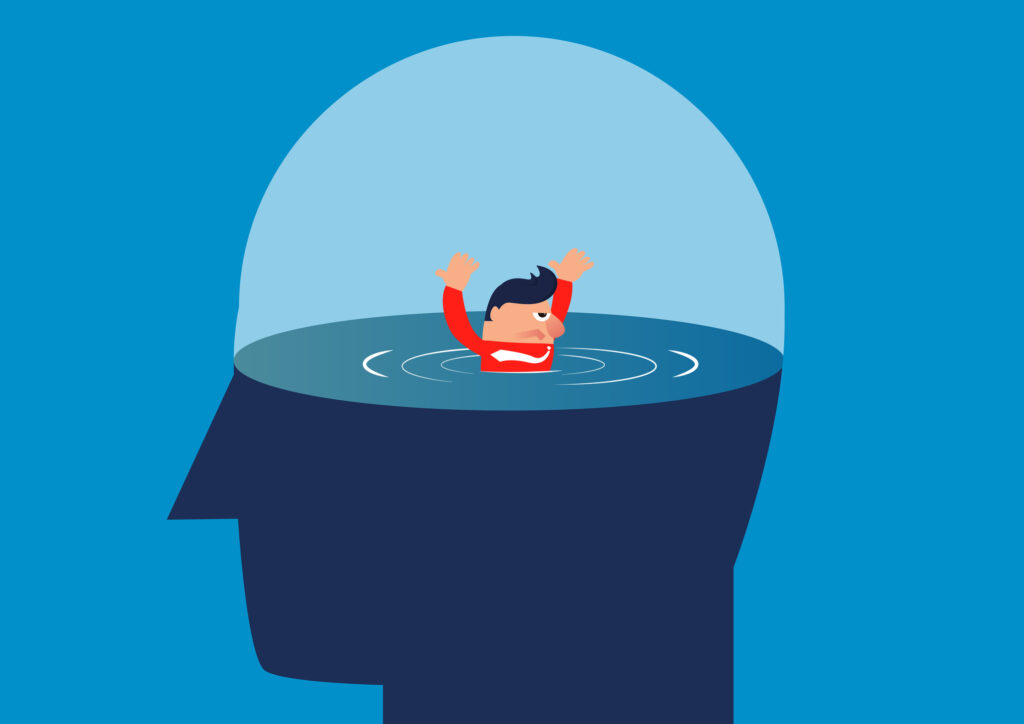A panic attack is a sudden period of intense fear that can last anywhere from 5 minutes to 30 minutes. It feels like you are having a heart attack, but it’s just your body’s reaction to stress. Panic attacks are not dangerous, they’re just very unpleasant and scary! When you have an attack, there are ways to stop it before it escalates out of control. In this article, we will discuss how to stop a panic attack.
Contents
What a Panic Attack Feels Like?
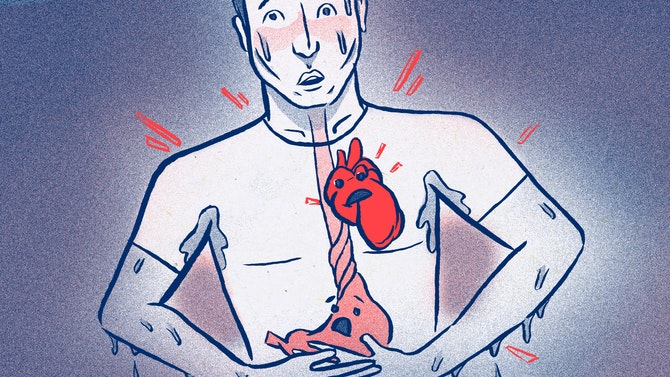
Panic attacks can feel very different for everyone, but there are some common symptoms. You may feel like you’re having a heart attack with chest pain and shortness of breath.
Some people report feeling like they are choking or having difficulty breathing. They might also feel dizzy and disoriented. Sometimes when you have an attack your limbs go numb, which can be scary because it feels like the world is spinning around you!
Common Symptoms
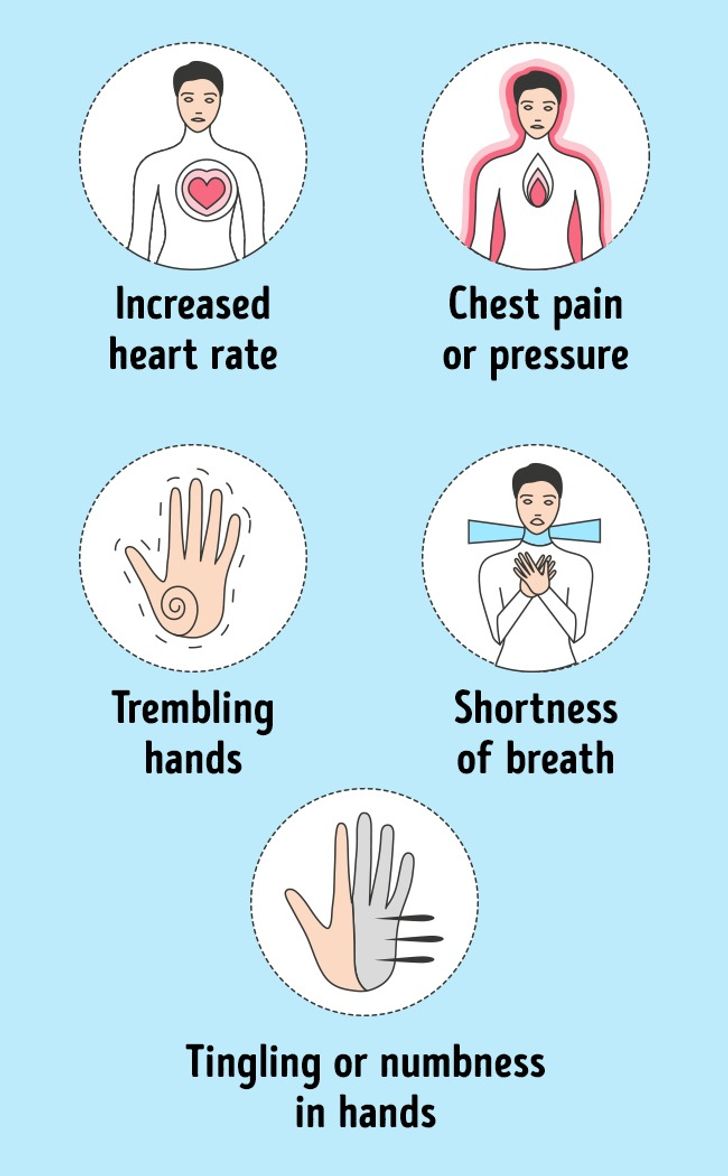
Other common symptoms include:
- Feeling dizzy,
- Sweaty, or lightheaded;
- Nausea and vomiting;
- Tingling sensations or numbness in your extremities; and
- Fear of dying, losing control, or going crazy
In Short: Panic attacks can be very intense, but they won’t last forever. They usually peak within ten minutes or so and then begin to fade away. Often when you have one panic attack you will experience more in the future, especially if there is no treatment.
Who Gets Panic Attacks?
Anyone can get panic attacks, but they are most common in people aged 20-29 years old. Women also experience them more than men do by about three times as often!
What Causes Panic Disorder?
There is no one answer to this question either, as a panic disorder can be caused by a variety of things. Some people might have a chemical imbalance in their brain that causes them to experience more anxiety and fear than others.
Others might develop the panic disorder after experiencing a traumatic event or during a time of high stress. Panic disorder can also run in families, so it might be genetic.
What Triggers A Panic Attack?
There is no one answer to this question, as panic attacks can be triggered by a variety of things. Some people might experience an attack after a traumatic event, while others might have them randomly with no clear trigger.
Common Triggers
Some of the most common triggers include:
- Stressful life events;
- Smoking or caffeine;
- Alcohol;
- Certain medications;
- Exercise; and
- Changes in your routine
Risk Factors
Other risk factors for having panic attacks include:
- Having a close family member who has had them;
- Being in the military, police, or firefighting professions; and/or
- Experiencing an extreme stressor
NOTE: Try avoiding these triggers when possible for a few weeks to see if they make any difference in how often you have an attack. You may also find it helpful to keep a diary of your attacks and what was going on before you had one.
What to Do When You’re Having a Panic Attack?
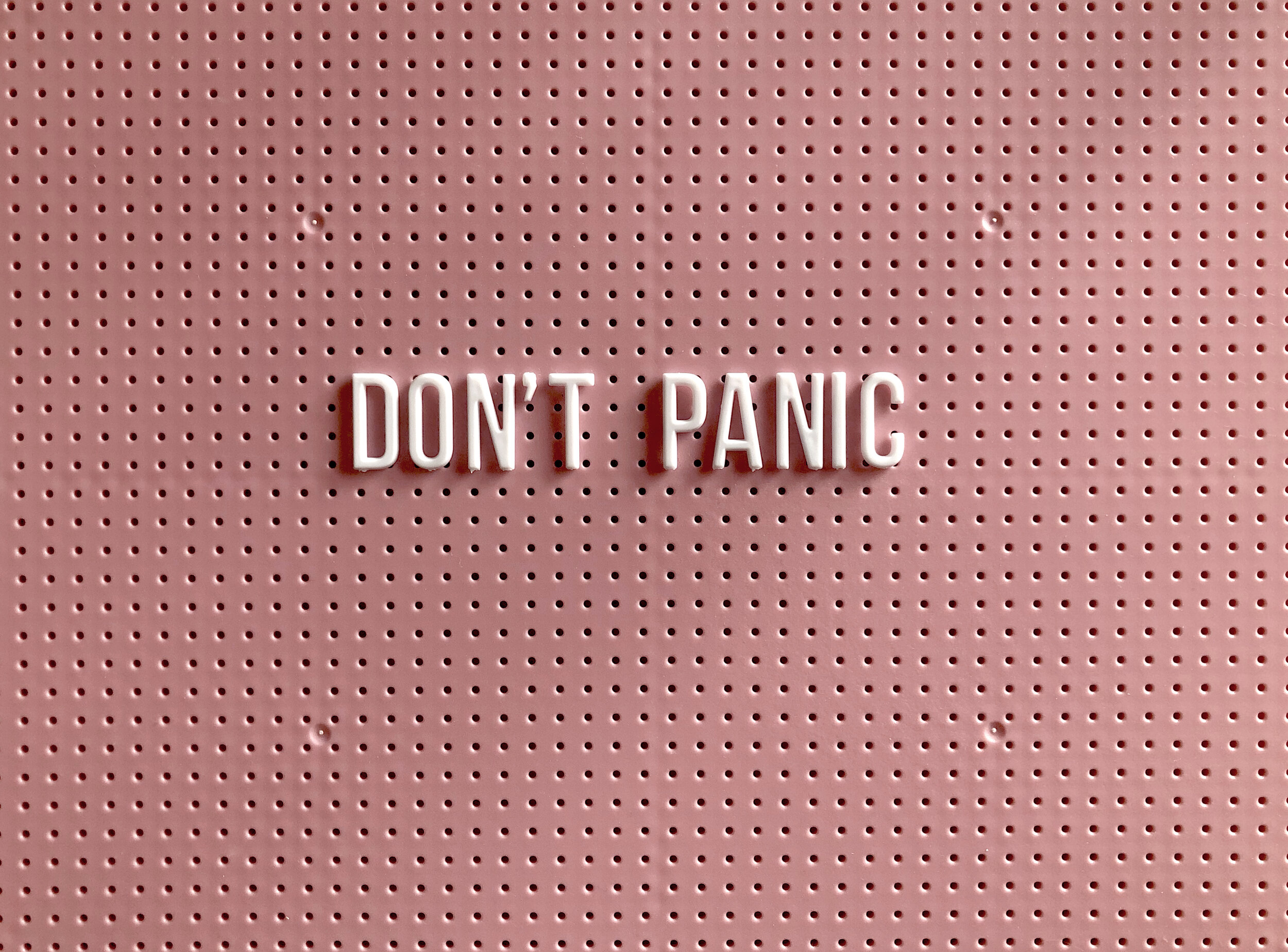
If you’re having a panic attack for the first time it can be very scary and overwhelming. You must know how to stop a panic attack before they get out of hand. The best thing to do when experiencing an attack is to try and remain calm.
Handy Tips
There are a few things you can do to help yourself:
- Breathe deeply and slowly;
- Count to ten (or any other number) slowly;
- Focus on something in the room that is calming, like a picture or object;
- Distract yourself by singing or talking to yourself; and
- Remind yourself that the attack will pass if you ride it out
Distraction Techniques
Distract yourself from the anxiety you are feeling by singing songs or talking to yourself. If this doesn’t work, try some quick exercises that can help get rid of tension in your body:
- Straighten your legs while sitting with good posture for a minute,
- Tighten all of the muscles in one leg for ten seconds, and
- Then switch to the other leg.
Repeat this with your arms for another minute, too!
These exercises force you to focus on what is happening in your body instead of letting yourself become overwhelmed by how scary the attack feels.
Breathing Exercises
The next time you feel an attack coming on or are already experiencing one, try some deep breathing exercises.
- Breathe in through your nose for three seconds,
- Hold it for one second and
- Then exhale out of your mouth
Keep repeating this pattern until the attack subsides!
What to Do If You’re Alone?
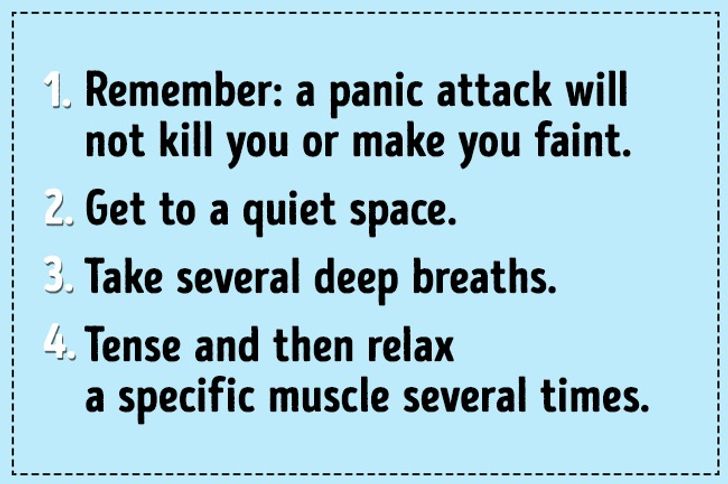
If you’re alone when you feel like an anxiety attack is coming on there are a few things that can help:
- Call a friend or family member and have them talk to you;
- Go for a walk outside;
- Watch calming videos on YouTube, such as nature scenes or ASMR videos;
- Listen to calm music; or
- Play with a pet
If none of these work, try going to the bathroom and splashing some cold water on your face.
What Are Panic Disorder Treatment Options?
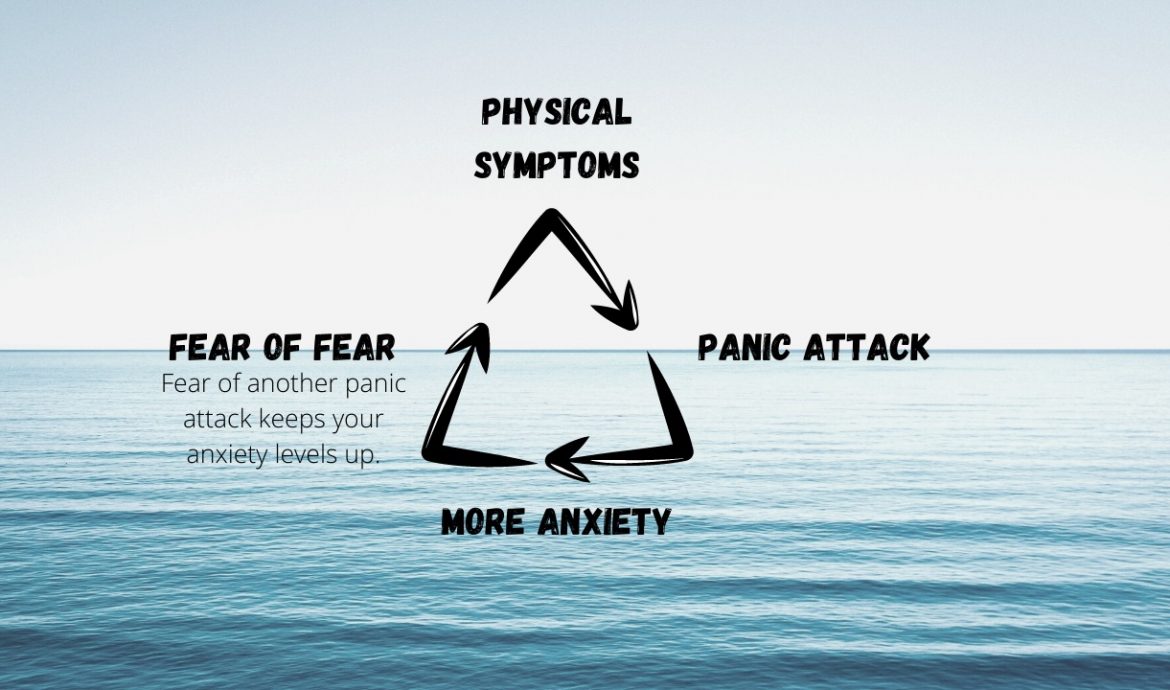
If you’ve been experiencing panic attacks regularly and they’re impacting your quality of life, it’s time to seek treatment. There are a few different options available:
- Psychotherapy;
- Medication; and/or
- Self-help strategies
- Mindfulness-based therapy;
- Interpersonal therapy
NOTE: If you’re not sure which treatment option is best for you, it’s a good idea to speak with a mental health professional.
Treatment Options For Panic Disorder
Here is a list of treatment options that you can refer to:
Cognitive-behavioral therapy (CBT)
It is the most common type of psychotherapy used to treat panic disorder. This type of therapy helps you understand how your thoughts and behaviors contribute to your panic attacks and helps you to change them.
Your therapist will likely ask you a lot of questions about what triggers your attacks, how long they last, and what kinds of things make it worse for you. This information will help them create a personalized treatment plan for you.
Medication for Panic Disorder
If you’re not interested in or unable to undergo therapy, medication might be a good option for you. There are a variety of medications that can treat panic disorder, such as antidepressants and antianxiety medications.
Prescription medications — including antidepressants, anti-anxiety drugs (benzodiazepines), and beta-blockers — can all be used alone or combined with psychotherapy to treat panic disorder.
Benzodiazepines may be the best choice for short-term treatment of a panic attack, while antidepressants may be the best choice for long-term treatment.
There is also research that suggests SSRIs may affect panic disorder symptoms, so they might be a good option for you too.
Self-Help Strategies for Panic Disorder
There are a few different self-help strategies that can help you manage your panic disorder symptoms:
- Breathing exercises to relax tense muscles;
- Relaxation techniques such as progressive muscle relaxation and guided imagery;
- Exercise;
- Stress management techniques, such as yoga or meditation; and/or
- Keeping a journal to track your symptoms over time
NOTE: Let’s say you’ve been experiencing panic attacks for a while now and they’re starting to get in the way of your work life. You don’t want them coming on at school or while you’re out with friends. It’s time to seek treatment. If you’re not sure which treatment option is best for you, it’s best to speak with a mental health professional. They can help you to find the treatment that works best for you.
Psychotherapists On Panic Disorder

Many psychotherapists specialize in helping people who suffer from panic disorder. If you are looking for a therapist, it is important to find one who has experience in this area and who can help you manage your symptoms. Don’t be afraid to ask around or do some research before you start working with someone, as your therapist must be able to help.
An Important Piece Of Information
One of the most common symptoms of panic disorder and other anxiety disorders is avoidance behavior. People will often go out of their way not to do things or go places because they fear having a panic attack. This can lead to an extremely restricted life, which is not only uncomfortable but can also be very limiting.
If you are struggling with avoidance behavior, it is important to find a therapist who can help you work through these feelings. Many therapists will use cognitive behavioral therapy or exposure therapy to help you face your fears and overcome them. This type of therapy can be difficult but it is often very effective in helping people learn to manage their fear and avoidance.
Conclusion
There are a variety of treatment options available for people who suffer from panic disorder. If you are looking for help, it is important to find a therapist who has experience in this area and can work with you to manage your symptoms. Many self-help strategies can be useful in managing your panic disorder. Remember, it is important to face your fears and not let them restrict your life.
If you are looking for affordable Online Counseling MantraCare can help: Book a trial therapy session
